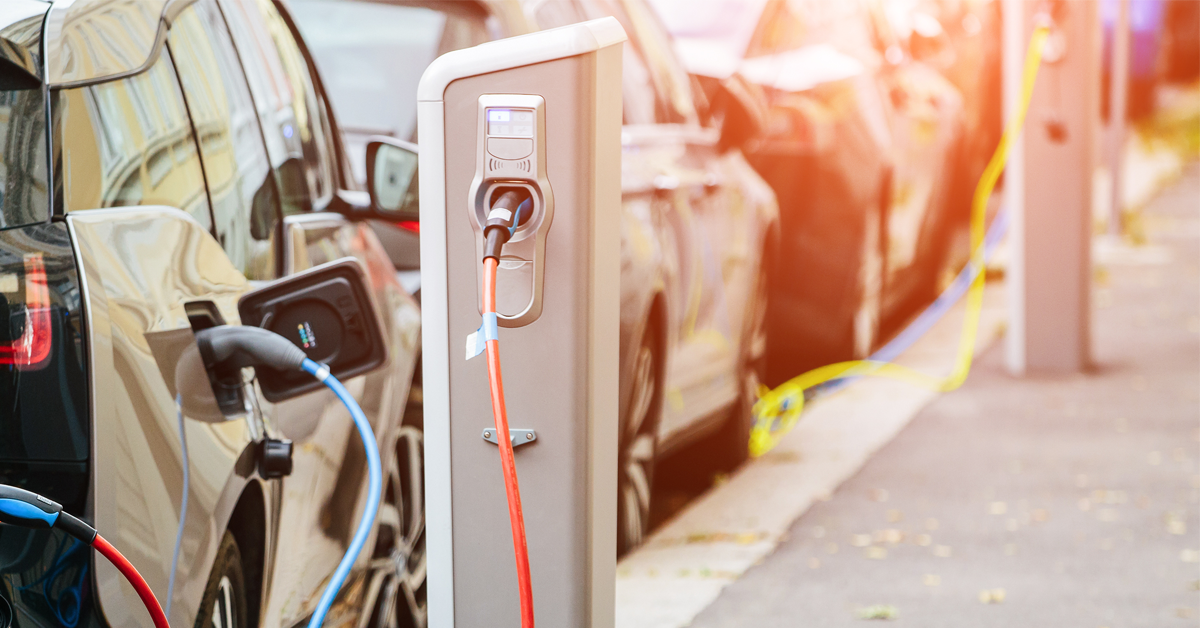 “Sit Back and Enjoy the Ride:
“Sit Back and Enjoy the Ride:
Practical Considerations for Condominium Boards Regulating Electric Vehicle Charging Stations”
On July 10, 2020, Governor Ron DeSantis announced over $8 million of the state’s budget this year will be dedicated to strengthening Florida’s electric vehicle infrastructure. The intent of what Gov. DeSantis described as a “long-term investment” is to “promote reduced emissions and better air quality” and to “improve mobility and safety for the ever-increasing number of Floridians that drive electric cars.” Undoubtedly, many of these electrically mobile Floridians also reside in one of the thousands of condominium associations located throughout the state. And while many Tesla enthusiasts await with bated breath the latest and greatest in electric powered vehicles, many condominium boards are fearful of how their condominium property may be negatively impacted by this latest Jetson-inspired craze.
What Your Association CANNOT Do.
In sum, s. 718.113(8)(a), F.S., prohibits any declaration or Board-rule or policy from prohibiting a unit owner from installing an electric vehicle charging station within the boundaries of the unit owner’s limited common element parking area. Importantly, unit owners do not have a unilateral, unrestricted right to install EV stations anywhere they please. The right is specifically limited to the owner’s limited common element (LCE) parking area. In other words, owners do not have the right to install EV stations on the Common Elements, within their units, or anywhere outside of the boundaries of their designated limited common element parking areas as outlined in the Association’s Declaration.
What Your Association CAN Do.
Where the Declaration does provide an LCE parking space for units, the Association can do the following:
- The Association can obligate the installing owner to pay for the costs of installation, operation, maintenance, and repair, including the costs to obtain hazard and liability insurance to cover the charging station.Because the EV station will be located on limited common elements, the Association can also require the Owner to provide to the Association proof that it is named as an additional insured on the Owner’s policy within 14 days of Association approval for the EV installation.
- The Association can also require the Owner to:
- Comply with bona fide safety requirements, consistent with applicable building codes or recognized safety standards, for the protection of persons and property.
- Comply with reasonable architectural standards adopted by the association that govern the dimensions, placement, or external appearance of the electric vehicle charging station, provided that such standards may not prohibit the installation of such charging station or substantially increase the cost thereof.
- Engage the services of a licensed and registered electrical contractor or engineer familiar with the installation and core requirements of an electric vehicle charging station.
- Reimburse the association for the actual cost of any increased insurance premium amount attributable to the electric vehicle charging station within 14 days after receiving the association’s insurance premium invoice.
- The Association can place a lien on the Unit in order to enforce payment of costs associated with the Owner’s installation and use of the EV station.The language of s. 718.113(8)(d), F.S. allows the Association to enforce payment of EV costs using the lien collection provisions provided in s. 718.116, F.S.. What is not clear is whether the Association is required to specially or individually assess the owner for the EV costs prior to filing a lien for the same. It is best to consult your Association’s Governing Documents and your Association attorney for further guidance on this process.
- The Association can deny an EV installation, if there is proof that it will cause irreparable harm to the Association property.This is best determined by an electrical engineer or other expert who can assess the Association property’s optimal electrical capacity and usage.
What Your Association SHOULD do.
- Amend Governing Documents to provide express easement and obligations for Unit Owners related to the installation and maintenance of EV stations.Because most condominium declarations recorded prior to the statute change will not reference an owner’s statutory right to install an electric vehicle charging station, the language of Section 718.113(8)(g), F.S. provides a statutory “implied easement” across the condominium’s common elements for this purpose regardless of the easement language contained in the Association’s governing documents.If the Association is able to obtain the necessary votes to amend the Declaration, it should do so to specifically include an express easement to Unit Owner’s for the installation, maintenance and repair of electric vehicle charging stations. The amendment should also outline the costs and liability responsibility of Unit Owners for their stations.
- Amend Governing Documents to address subsequent Unit Owner obligations and responsibilities for charging station maintenance and removal.Section 718.113(8)(d), F.S. makes the “unit owner who is installing” the station responsible for the costs of installation as well as removal and repair. This language, as it is currently written, can be interpreted to impose this responsibility only on the installing owner and does not specifically impose any continuing maintenance responsibility on any subsequent owners who may purchase the unit (and the appurtenant charging station) from the installing owner.Any amendment to the Declaration or Board policy related to EV stations should make sure to specifically impose maintenance and costs responsibility upon the installing owner and any subsequent owners.
- Engage an engineer or professional to assess the Association’s electric capacity prior to an influx of EV installation requests.Although every Unit Owner is technically entitled by the Condo Act to install an electric vehicle charging station within their LCE parking area, it is practically impossible for any condominium association to grant every owner’s request given the energy constraints of the condominium property. The Association should consult with an electrical engineer or other professional to conduct an independent assessment of the Association’s capacity to safely accommodate EV stations at the condominium property.